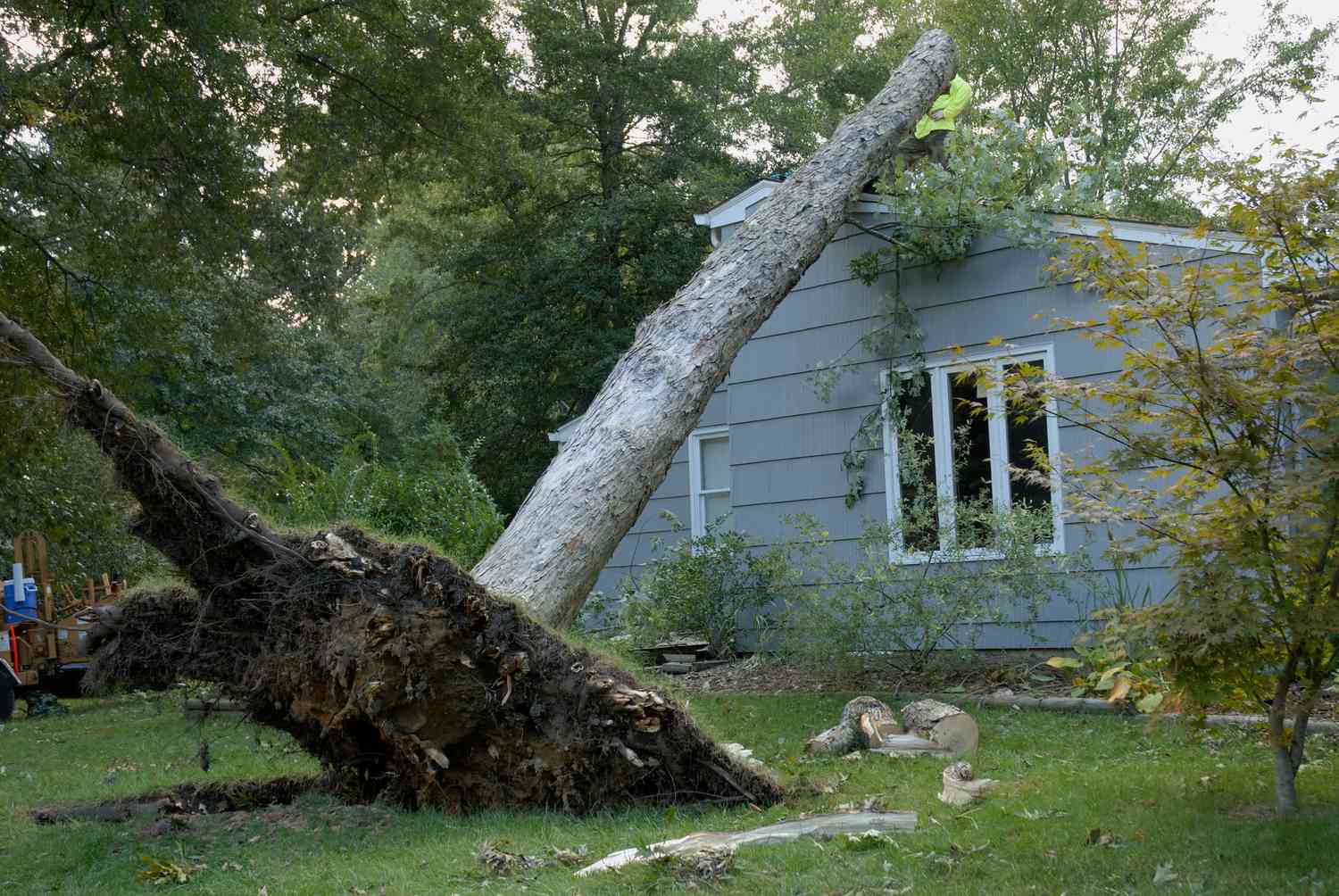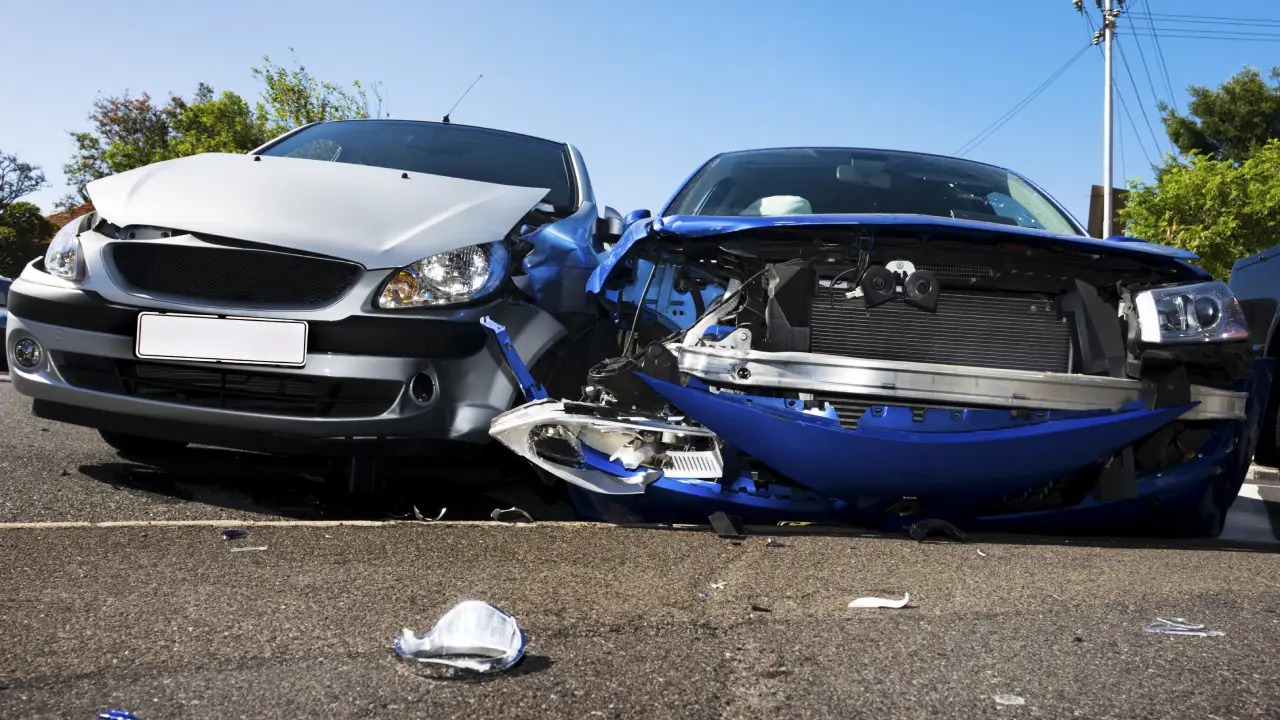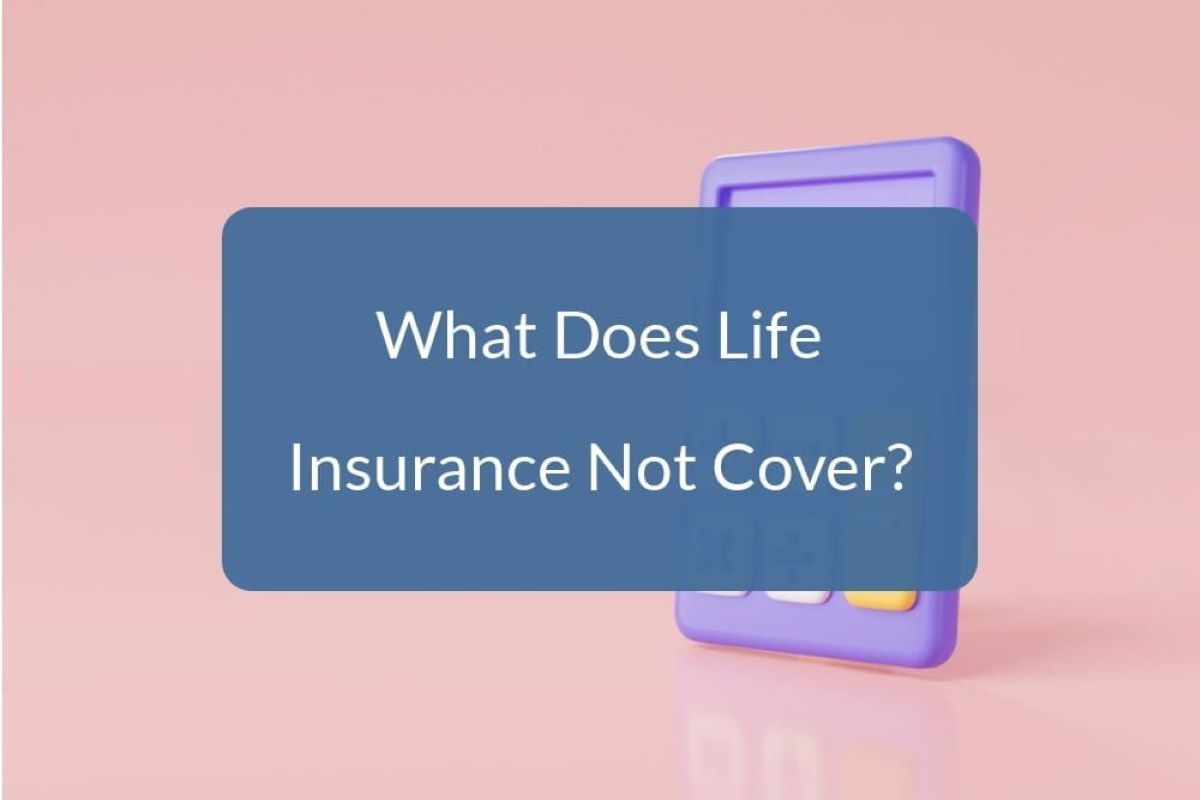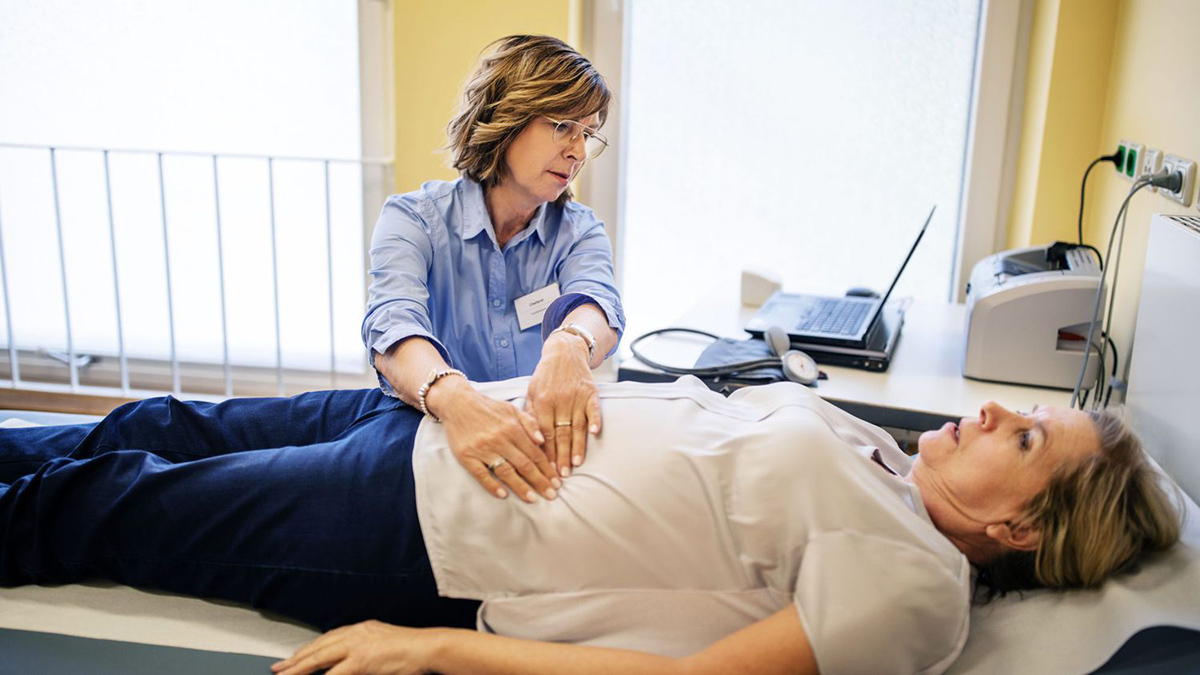

Finance
What Does Voluntary Accident Insurance Cover?
Published: November 19, 2023
Voluntary accident insurance provides financial protection against unexpected accidents, covering medical expenses, disability benefits, and even funeral costs. Safeguard your finances with this essential coverage.
(Many of the links in this article redirect to a specific reviewed product. Your purchase of these products through affiliate links helps to generate commission for LiveWell, at no extra cost. Learn more)
Table of Contents
- Introduction
- What is Voluntary Accident Insurance?
- Coverage for Medical Expenses
- Coverage for Disability Benefits
- Coverage for Accidental Death and Dismemberment
- Coverage for Rehabilitation and Therapy
- Coverage for Education Expenses
- Coverage for Transportation and Lodging Expenses
- Coverage for Dependent Care
- Coverage for Funeral Expenses
- Conclusion
Introduction
Accidents happen when we least expect them, and often come with unexpected expenses and financial burdens. In these situations, having insurance coverage can provide much-needed protection and peace of mind. One type of insurance that individuals can consider is voluntary accident insurance. This insurance coverage is designed to provide financial assistance in the event of accidental injuries.
Voluntary accident insurance is a type of supplemental insurance that individuals can select and purchase on their own, typically through their employer. It serves as a complement to existing health insurance policies and covers a wide range of accident-related expenses that may not be fully covered by traditional health insurance plans. Understanding what voluntary accident insurance covers is crucial for individuals looking to mitigate the financial impact of unexpected accidents.
In this article, we will delve into the different coverage options provided by voluntary accident insurance. From medical expenses to disability benefits, rehabilitation costs to funeral expenses, voluntary accident insurance aims to address the diverse financial needs that arise from accidental injuries.
By examining the various aspects of voluntary accident insurance coverage, individuals can make informed decisions about whether to add this coverage to their existing insurance plans. So let’s explore in detail what voluntary accident insurance covers and how it can benefit policyholders in times of need.
What is Voluntary Accident Insurance?
Voluntary accident insurance, also known as accidental injury insurance, is a type of supplemental insurance that provides coverage for medical expenses and other costs related to accidental injuries. It is typically offered as an optional benefit by employers, allowing employees to choose whether they want to enroll and pay for this additional coverage.
This type of insurance is designed to complement traditional health insurance coverage by filling in the gaps where regular health insurance may fall short. While health insurance covers medical expenses for illnesses and non-accident-related injuries, voluntary accident insurance specifically focuses on providing financial assistance for accidents and accidental injuries.
Voluntary accident insurance typically covers a wide range of accident-related expenses. These may include medical treatment costs, hospital stays, surgeries, diagnostic tests, prescription medications, and follow-up care. Policyholders can often choose the coverage amounts and deductibles that best suit their needs and budget.
One of the key benefits of voluntary accident insurance is its flexibility. Unlike traditional health insurance plans, voluntary accident insurance allows individuals to receive cash benefits directly, which can be used to cover expenses beyond medical costs. This provides policyholders with the freedom to allocate funds to meet their specific needs, whether it’s replacing lost income, paying for transportation to medical appointments, or covering household expenses during recovery.
It’s important to note that voluntary accident insurance is not a substitute for comprehensive health insurance. Rather, it is meant to work alongside existing coverage to provide an extra layer of financial protection in the event of accidents and accidental injuries. By adding voluntary accident insurance to their insurance portfolio, individuals can have peace of mind knowing that they are better prepared to handle unexpected expenses that may arise from accidents.
Coverage for Medical Expenses
One of the primary components of voluntary accident insurance is coverage for medical expenses. In the event of an accidental injury, this coverage kicks in to help policyholders manage the financial burden of medical treatment and related costs.
Voluntary accident insurance typically covers a wide range of medical expenses, including hospital stays, emergency room visits, surgeries, diagnostic tests, doctor’s appointments, and prescription medications. These costs can quickly add up, and having insurance coverage ensures that individuals are not left with hefty bills.
Policyholders often have the flexibility to choose their coverage amounts, deductibles, and co-payments, allowing them to tailor the policy to their specific needs and budget. This flexibility is particularly valuable for individuals who have high deductibles or co-payments on their primary health insurance, as voluntary accident insurance can help bridge the gap.
In addition to covering immediate medical expenses, voluntary accident insurance may also include coverage for ongoing medical care and follow-up treatments. This can be especially important for long-term or chronic conditions that result from an accident, such as physical therapy or rehabilitation.
It’s worth noting that voluntary accident insurance covers only accident-related medical expenses and not pre-existing conditions. It is essential for individuals to carefully review the policy terms and conditions to understand the scope of coverage and any exclusions or limitations that may apply.
By providing coverage for medical expenses, voluntary accident insurance offers individuals peace of mind, knowing that they will have financial support when unexpected accidents occur. Having this coverage in place can help alleviate the stress of medical bills and enable individuals to focus on their recovery rather than the financial implications of an accident.
Coverage for Disability Benefits
In addition to covering medical expenses, voluntary accident insurance often includes coverage for disability benefits. This component of the insurance policy provides financial support to policyholders who become temporarily or permanently disabled due to an accident.
When an accident results in disability, it can have a significant impact on an individual’s ability to work and earn income. Disability benefits provided by voluntary accident insurance help bridge the financial gap during the recovery process and can provide ongoing support for individuals facing long-term disabilities.
The disability benefits offered by voluntary accident insurance typically come in the form of cash payments, which are received on a regular basis. These payments can help policyholders replace a portion of their lost income, ensuring that they can continue to meet their financial obligations and maintain their standard of living.
It’s important to note that the coverage for disability benefits may have specific requirements outlined in the policy. For example, the disability may need to be certified by a medical professional, and there may be waiting periods before the benefits are payable. Policyholders should carefully review the terms and conditions of their policy to understand the details and eligibility criteria for disability benefit coverage.
Having coverage for disability benefits can provide individuals with a sense of security, knowing that they have financial support if they are unable to work due to a disability caused by an accident. This coverage can offer peace of mind and allow individuals to focus on their recovery without the added worry of lost income.
Coverage for Accidental Death and Dismemberment
Voluntary accident insurance often includes coverage for accidental death and dismemberment (AD&D). AD&D coverage provides financial protection to policyholders and their beneficiaries in the event of a severe accident that results in death or the loss of a limb or bodily function.
In the unfortunate event of an accident that leads to accidental death, the AD&D coverage pays out a benefit to the designated beneficiary or beneficiaries. This benefit helps provide financial support to the family or loved ones left behind. The amount of the payout is typically based on the coverage amount selected by the policyholder.
AD&D coverage also includes benefits for dismemberment, which refers to the loss of a limb or bodily function due to an accident. If the policyholder experiences a covered dismemberment event, such as the loss of a hand, a foot, or the ability to see or hear, they may be eligible to receive a lump-sum payout to help cover medical expenses, assistive devices, and other necessary accommodations.
It’s important to review the terms and conditions of the policy to understand the specific coverage details for accidental death and dismemberment. There may be limitations and exclusions outlined in the policy, so it’s crucial for policyholders to be aware of these and assess whether additional coverage may be needed.
Accidental death and dismemberment coverage can provide peace of mind to individuals and their families, knowing that there is financial protection in the event of a severe accident. While we hope that such events never occur, having this coverage in place can help alleviate the financial stress during a difficult time and ensure that loved ones are taken care of.
Coverage for Rehabilitation and Therapy
In the aftermath of an accident, individuals often require rehabilitation and therapy to regain functional abilities, improve mobility, and enhance overall quality of life. Voluntary accident insurance often includes coverage for these essential services, helping policyholders access the necessary care and support for their recovery.
Rehabilitation and therapy coverage provided by voluntary accident insurance can encompass a wide range of services. This may include physical therapy, occupational therapy, speech therapy, and other specialized treatments tailored to the specific needs of the individual. These services are designed to help individuals regain independence, rebuild strength and stamina, and optimize their overall well-being.
Having coverage for rehabilitation and therapy can be invaluable, as these services can be costly, especially if an extended period of care is required. By mitigating the financial burden associated with these treatments, voluntary accident insurance ensures that individuals can access the necessary care without having to worry about the expense.
It’s important to note that policy terms and conditions may vary, and there may be limitations on the duration or frequency of therapy sessions covered. Policyholders should carefully review their policy to understand the specific details and any requirements for eligibility. Additionally, it’s essential to work closely with healthcare professionals to ensure that the services received align with the coverage provided by the insurance policy.
By providing coverage for rehabilitation and therapy, voluntary accident insurance aims to support individuals on their journey to recovery. This coverage not only helps individuals regain physical functionality but also promotes overall well-being and quality of life following an accident.
Coverage for Education Expenses
In addition to medical and rehabilitation coverage, some voluntary accident insurance policies also offer coverage for education expenses. This component of the policy aims to provide financial assistance to policyholders who experience accidental injuries that result in temporary or permanent disabilities affecting their education.
Coverage for education expenses can help individuals continue their academic pursuits despite the challenges brought about by an accident. This coverage may include tuition fees, textbooks, supplies, specialized equipment, and any necessary accommodations or support services required to facilitate learning. The exact coverage details and limits will vary depending on the policy and the individual’s specific needs.
Education coverage is particularly valuable for individuals pursuing higher education or professional certifications, as the costs associated with these educational endeavors can be substantial. By alleviating the financial burden, voluntary accident insurance ensures that individuals can continue their education without interruption, despite the challenges they may face due to accidental injuries.
It’s important to review the terms and conditions of the policy to understand the specific limits and requirements for education expense coverage. Some policies may have limitations on the duration or types of educational programs covered. It’s also essential to provide proper documentation and proof of eligibility to access this coverage.
By providing coverage for education expenses, voluntary accident insurance demonstrates its commitment to supporting individuals’ long-term aspirations and goals. This coverage enables individuals to pursue their educational dreams, even in the face of unexpected accidents and injuries.
Coverage for Transportation and Lodging Expenses
When accidents occur, individuals often need to travel to receive specialized medical care or undergo treatment at distant healthcare facilities. In such cases, voluntary accident insurance may include coverage for transportation and lodging expenses associated with accessing necessary medical services.
Transportation coverage typically includes reimbursement for expenses such as ambulance services, air or ground transportation, and mileage reimbursement for personal vehicles when traveling for medical purposes. This coverage helps ensure that individuals can reach the appropriate medical facilities without incurring significant out-of-pocket expenses.
Lodging coverage provides reimbursement for accommodation expenses incurred during medical treatment. This can include hotel stays or temporary rental accommodations near the healthcare facility. By covering lodging expenses, voluntary accident insurance aims to alleviate the financial burden of finding suitable and convenient accommodations during the treatment and recovery period.
Policyholders should be aware that there may be limitations on transportation and lodging coverage, including designated distances or proximity to the medical facility, caps on reimbursement amounts, and requirements for pre-authorization or documentation. It is crucial to review the policy terms and conditions to understand the specific coverage details and any necessary procedures for reimbursement.
Having coverage for transportation and lodging expenses is particularly beneficial for individuals who need to travel long distances or to specialized medical centers for treatment. It ensures that the financial aspects of accessing necessary medical care are taken care of, allowing individuals to focus on their well-being without additional stress.
By providing coverage for transportation and lodging expenses, voluntary accident insurance offers policyholders the peace of mind and financial support they need to access the appropriate medical services, regardless of geographical location.
Coverage for Dependent Care
Accidents can disrupt daily routines and responsibilities, especially for individuals who have dependents, such as children or elderly family members, who rely on their care. To address this concern, some voluntary accident insurance policies include coverage for dependent care expenses.
Dependent care coverage aims to provide financial support to policyholders who need to secure alternative caregiving arrangements for their dependents due to their own accidental injuries. This coverage can assist with expenses related to childcare, eldercare, or other caregiving services essential for the well-being and safety of the dependents.
Depending on the policy, dependent care coverage may include reimbursement for daycare expenses, after-school programs, in-home care services, or respite care for caregivers. The coverage limits and requirements will vary depending on the insurance policy and the unique needs of the policyholder’s dependents.
It’s important to carefully review the terms and conditions of the policy to understand the coverage details and any specific limitations or exclusions that may apply. Policyholders may need to provide appropriate documentation to demonstrate the need for dependent care and the associated expenses.
Dependent care coverage helps alleviate the financial burden of arranging and paying for substitute care during the policyholder’s recovery period. It ensures that their dependents continue to receive the necessary care and support they require, providing peace of mind for the policyholder and allowing them to focus on their own healing process.
By offering coverage for dependent care, voluntary accident insurance demonstrates its understanding of the challenges individuals face when caring for their loved ones after an accident. This coverage provides the necessary support to maintain the well-being and safety of dependents during the policyholder’s recovery period.
Coverage for Funeral Expenses
In the unfortunate event of a fatal accident, voluntary accident insurance may provide coverage for funeral expenses. This coverage is designed to help the family and loved ones left behind manage the financial burden associated with funeral arrangements and related costs.
Funeral expenses can be significant, including costs such as funeral home services, cremation or burial expenses, transportation, memorial services, and other related expenses. The coverage provided by voluntary accident insurance can help alleviate the financial strain on the family during this difficult time.
Policyholders should carefully review the terms and conditions of their insurance policy to understand the specific details and limits of coverage for funeral expenses. It’s essential to gather the necessary documentation and follow any claim procedures outlined in the policy to ensure a smooth reimbursement process.
Having coverage for funeral expenses can provide peace of mind to individuals and their families, knowing that financial assistance is available during a challenging and emotionally draining period. This coverage allows families to focus on grieving and honoring their loved one’s memory without the added stress of financial concerns.
While we hope to never use this aspect of voluntary accident insurance, having the coverage in place can help individuals plan for the unexpected and ensure that their loved ones are taken care of in the event of a tragic accident.
Conclusion
Voluntary accident insurance is a valuable tool that provides individuals with additional financial protection in the event of accidental injuries. This supplemental insurance coverage fills in the gaps left by traditional health insurance, offering a range of benefits to policyholders and their families.
From coverage for medical expenses and disability benefits to accidental death and dismemberment benefits, voluntary accident insurance aims to address the diverse financial needs that arise from accidents. It provides policyholders with the peace of mind that they are protected against unexpected expenses that may result from accidents.
Additionally, voluntary accident insurance offers coverage for rehabilitation and therapy, helping individuals regain functionality and improve their overall quality of life. This type of coverage is essential for facilitating and supporting the recovery process.
Furthermore, voluntary accident insurance can also include coverage for education expenses, ensuring that individuals can continue their educational pursuits despite the setbacks caused by accidents. This coverage allows individuals to invest in their future and continue building their knowledge and skills.
Transportation and lodging expense coverage is another valuable component of voluntary accident insurance. It helps ease the financial burden of accessing specialized medical care, ensuring that individuals can receive the necessary treatment without worrying about transportation or accommodation costs.
Moreover, coverage for dependent care provides policyholders with the assurance that their loved ones will be taken care of if they are unable to fulfill their caregiving responsibilities due to accidental injuries. This coverage extends support to the dependents who rely on the policyholder’s care and ensures their well-being during the recovery process.
Lastly, in the unfortunate event of a fatal accident, voluntary accident insurance may include coverage for funeral expenses. This coverage helps alleviate the financial burden on the family and allows them to focus on honoring and remembering their loved one without financial stress.
In conclusion, voluntary accident insurance plays a crucial role in providing individuals with comprehensive financial protection in the face of unexpected accidents. By understanding the coverage options available, individuals can make informed decisions, ensuring that they have the necessary coverage to weather the financial implications of accidents and focus on their recovery and well-being.














